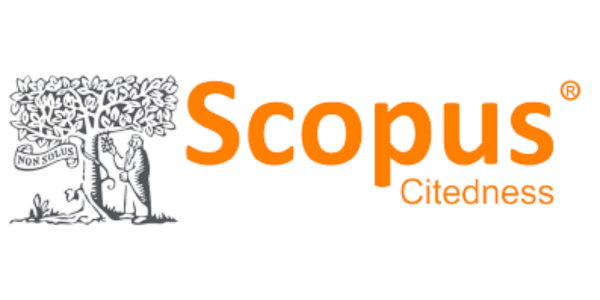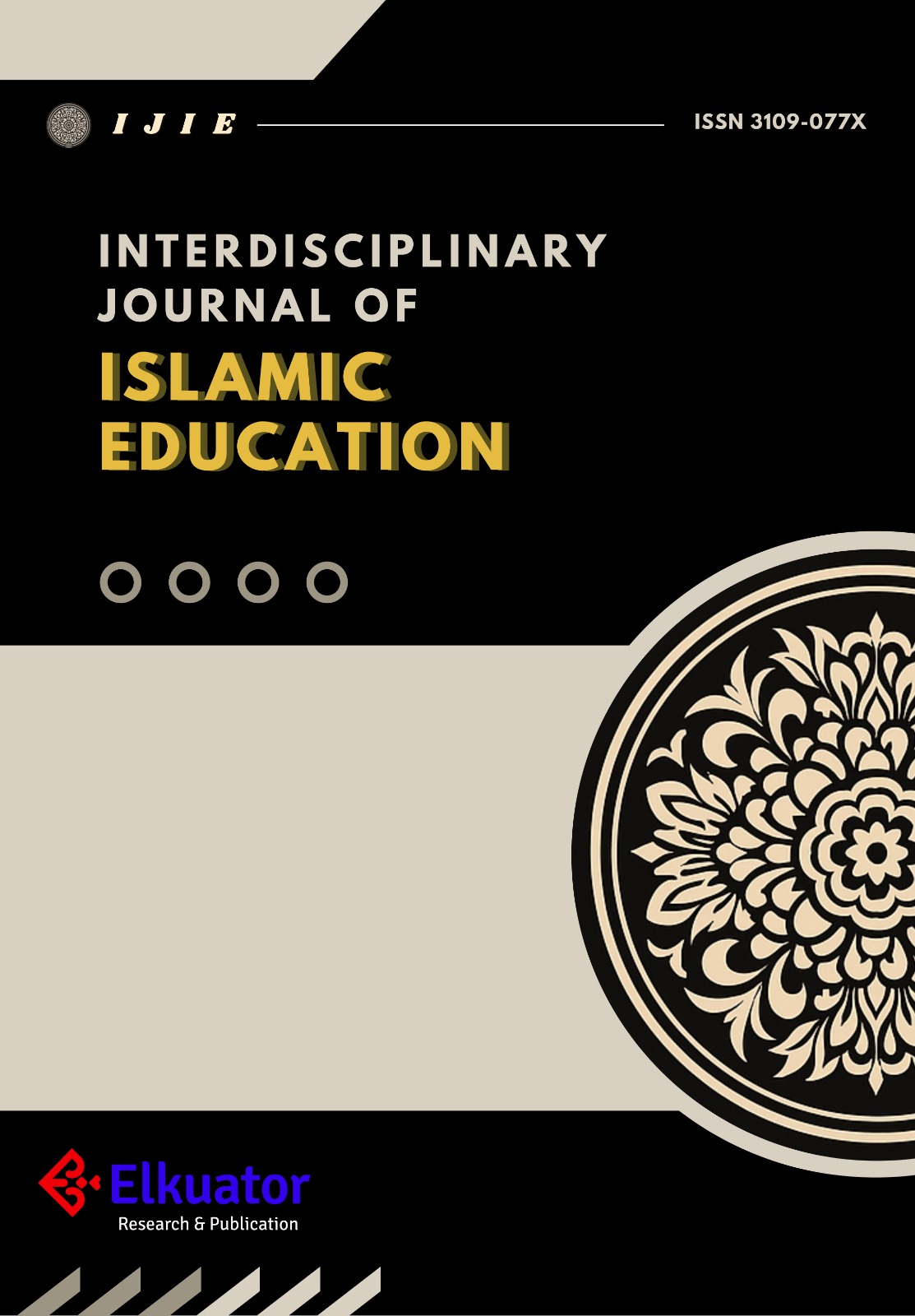The Concept of Good Governance in the Story of Prophet Solomon: A Maqāṣidī Interpretation Analysis of Q.S. An-Naml [27]: 17-44
DOI:
https://doi.org/10.24260/basmala.1.1.22Keywords:
Good Governance, Prophet Sulaiman, Tafsīr Maqāṣidī, Institution, Ḥifẓ al-DawlahAbstract
This article examines the institutional model of good governance as illustrated in the story of Prophet Solomon, particularly as conveyed in Q.S. An-Naml [27]: 17–44, through a tafsīr maqāṣidī (purposive exegesis) approach. Unlike previous studies that have primarily focused on either the individual leadership of Solomon or isolated narrative fragments, this research argues that the Qur’an provides a holistic framework for governance—one that encompasses the government, civil society, and the private sector, even if not in the form of modern formal institutions. By employing analyses of both maqāṣid zhāhir (apparent objectives) and maqāṣid bāṭin (hidden objectives), along with Abdul Mustaqim’s concept of ḥifẓ al-dawlah (protection of the state), this study demonstrates that the account of Prophet Solomon exemplifies a governance system that prioritizes the protection of religion, life, and the state, while upholding justice, equality, humanity, moderation, and responsible freedom. These findings emphasize that good governance is not solely the responsibility of the leader; rather, it arises from the synergistic collaboration among various segments of society, all striving to achieve the public good (maṣlaḥah). The contribution of this research lies in presenting a more comprehensive Qur’an-based institutional model of good governance, thereby enriching the discourse on tafsīr maqāṣidī within the study of governance.
[Artikel ini mengkaji model kelembagaan good governance yang terkandung dalam kisah Nabi Sulaiman, khususnya dalam Q.S. An-Naml [27]: 17-44, melalui pendekatan tafsīr maqāṣidī. Berbeda dengan kajian sebelumnya yang lebih berfokus pada kepemimpinan individu atau fragmen kisah, penelitian ini berargumen bahwa Al-Qur'an menawarkan kerangka tata kelola pemerintahan yang holistik, melibatkan pemerintah, masyarakat madani, dan sektor swasta, meskipun tidak dalam bentuk kelembagaan formal modern. Dengan menggunakan analisis maqāṣid zhāhir dan maqāṣid bāṭin, serta konsep ḥifẓ al-dawlah dari Abdul Mustaqim, penelitian ini menemukan bahwa kisah Nabi Sulaiman mengilustrasikan sebuah sistem pemerintahan yang mengutamakan perlindungan agama, jiwa, dan negara; menegakkan keadilan, kesetaraan, kemanusiaan, moderasi, serta kebebasan yang bertanggung jawab. Temuan ini menyoroti bahwa good governance bukan hanya tanggung jawab pemimpin, melainkan hasil kolaborasi sinergis antara berbagai komponen masyarakat yang bertujuan mencapai maṣlaḥah. Kontribusi penelitian ini adalah menyajikan model kelembagaan good governance berbasis Al-Qur'an yang lebih komprehensif, serta memperkaya diskursus tafsīr maqāṣidī dalam studi tata kelola pemerintahan.]
References
Al-Baydāwī, Naṣīr al-Dīn. Anwār Al-Tanzīl Wa Asrār al-Ta’wīl. Vol. 4. Beirut: Dār Iḥyā’ al-Turāth al-ʿArabī, 1998.
Alibašić, H. “Exploring the Influence of Islamic Governance and Religious Regimes on Sustainability and Resilience Planning: A Study of Public Administration in Muslim-Majority Countries.” Public Policy and Administration 39, no. 4 (2024): 556–87. https://doi.org/10.1177/09520767231223282.
Al-Katsīr, Ismāʿīl ibn. Tafsīr Al-Qur’ān al-ʿAẓīm. Cairo: Mu’assasah Qurṭubah, 2000.
Al-Khālidī. Al-Qaṣaṣ Al-Qur’ānī ‘Arḍ Waqa’i Wa Taḥlīl Aḥdāth. Vol. 3. Damaskus: Dar al-Qalam, 1998.
Al-Shāṭībī, Abū Ishāq. Al-Muwāfaqāt Fī Uṣūl al-Sharīʿah. Beirut: Dār al-Kutub al-ʿIlmiyyah, 2004.
Al-Ṭabarī, Muḥammad ibn Jarīr. Jāmiʿ Al-Bayān ʿan Taʾwīl Ayy al-Qur’ān. Vol. 18. Cairo: Dār Hijr, 2001.
Al-ʿArabī, Ibn. Aḥkām Al-Qur’ān. Vol. 3. Beirut: Dār al-Kutub al-ʿIlmiyyah, 2003.
Al-ʿArabiyyah, Mujammʿa al-Lughah. Mu’jam al-Wāsiṭ. Egypt: Maktabah al-Shurūq al-Dawliyyah, 2004.
Al-ʿAsfahānī, Al-Rāghib. Mufradāt Alfāẓ Al-Qur’ān. Damascus: Dār al-Qalam, 2009.
Aziza, N.A., and S. Ülev. “The Implementation of Governance Principles in Islamic Microfinance: A Comparative Analysis between Turkiye and Indonesia.” Hamdard Islamicus 46, no. 4 (2023): 53–75. https://doi.org/10.57144/hi.v46i4.719.
Bourne, D., and M. Alanazi. “Islamic Leadership.” In Elgar Encyclopedia of Leadership, 125–26, 2025. https://doi.org/10.4337/9781035307074.00058.
Collet, B.A. Migration, Religion, and Schooling in Liberal Democratic States. Migration, Religion, and Schooling in Liberal Democratic States, 2017. https://doi.org/10.4324/9781315624945.
Din, S.U., S.H. Syed Ismail, and R.H. Raja Sulong. “Combating Corruption Based on Al-Siyasah al-Syar’iyyah Perspective: A Literature Review.” International Journal of Ethics and Systems 40, no. 4 (2024): 776–807. https://doi.org/10.1108/IJOES-12-2022-0312.
Gea, Antonius Antosokhi. “Integritas Personal Dan Kepemimpinan Etis.” Humaniora 5 (2014).
Ghani, N.A.R.N.A., M.N. Alias, M.S.Gh.O. Alazemi, and M.S. Kamis. “Implementation of Shariah Governance in the Charitable Sector: Challenges and Importance from an Islamic Perspective.” Pakistan Journal of Life and Social Sciences 22, no. 1 (2024): 6890–6904. https://doi.org/10.57239/PJLSS-2024-22.1.00503.
Hameed, A.R., and S.K. Jabir. “The Religious Institution’s Role in Spreading the Tolerance Culture.” Res Militaris 12, no. 2 (2022): 3000–3008.
Humām Ḥasan Yūsuf Salūm. Sulaimān ’Alaihi Al-Salām Fī Al-Qur’ān Al-Karīm. Nablus: Jāmi’ah al-Najāḥ al-Waṭaniyyah Nablus, 2006.
Ibn Manẓūr. Lisān Al-ʻArab. Dār al-Maʻārif.
Ibn Qayyim Al-Jauziyyah. Miftāḥu Dār Al-Sa’ādah Wa Mansyūru Wilāyah Al-’Ilmi Wa Al-Irādah. Jeddah: Dar ’Ālim al-Fawā’idi, 2011.
Islamiyah, Nurul Lailatul. “Simbolisasi Nilai-Nilai Pendidikan Karakter Dalam Kisah Nabi Sulaiman (Kajian Q.S. al-Naml [27]: 17-44).” Undergraduate, UIN Sunan Ampel Surabaya, 2019. http://digilib.uinsa.ac.id/31276/.
Ismail al-Qudsy, S.H.S., and A.A. Rahman. “Effective Governance in the Era of Caliphate ̀Umar Ibn Al-Khattab (634-644).” European Journal of Social Sciences 18, no. 4 (2011): 612–24.
Joffé, G. “Democracy and the Muslim World.” In The International Politics of Democratization: Comparative Perspectives, 167–78, 2008. https://doi.org/10.4324/9780203938775-18.
Kaufmann, Daniel, Aart Kraay, and Pablo Zoido. “Governance Matters,” August 1, 1999. https://papers.ssrn.com/abstract=188568.
Kayapinar, M.A. “Limitations of Power in Islamic Political Thought.” Islam Tetkikleri Dergisi 14, no. 1 (2024): 121–48. https://doi.org/10.26650/iuitd.2024.1398630.
Malik, M. Foundations of Islamic Governance: A Southeast Asian Perspective. Foundations of Islamic Governance: A Southeast Asian Perspective, 2016. https://doi.org/10.4324/9781315414652.
Mas’ud, Ibnu. The Leadership of Sulaiman. Yogyakarta: Noktah, 2018.
Mattawang, S. Wawasan Al-Qur’an Tentang Kepemimpinan Nabi Sulaiman (Suatu Kajian Maudhui). UIN Alauddin Makassar, 2017.
Moten, Abdul Rashid. “Al-Siyasah al-Shar’iyah: Good Governance in Islam.” In Qur’anic Guidance for Good Governance, 55–81. Palgrave Macmillan, Cham, 2017. https://doi.org/10.1007/978-3-319-57873-6_4.
Mufidah, I. A. Diplomasi Nabi Sulaiman Dengan Ratu Bilqis (Studi Kajian Tafsir Q.S. al-Naml [27]:29-44). UIN Sunan Ampel, 2020.
Muḥammad bin Aḥmad Al-Qurṭubī. Al-Jāmi’ Li Aḥkām Al-Qur’ān. Beirut: Mu’assasah al-Risālah, 2006.
Muḥammad Ṭāhir ibn ‘Āsyūr. Tafsīr Al-Taḥrīr Wa Al-Tanwīr. Vol. 19. Tunisia: Dar al-Tunisiyyah li al-Nasyr, 1984.
Nasir, Khairulnazrin, Rahim Kamarul Zaman, and Khalilullah Amin Ahmad. “Gagasan Malaysia Madani: Analisis Korelasi Enam Nilai Teras Ketamadunan Daripada Kisah Nabi Sulayman (As) Dalam Surah Al-Naml.” Al-Bayan: Journal of Qur’an and Hadith Studies 22, no. 2 (August 7, 2024): 291–317. https://doi.org/10.1163/22321969-20240154.
Oran, A.F. “A Conception to Activate Zakāh as an Islamic Mechanism for Human Development.” Journal of King Abdulaziz University, Islamic Economics 29, no. 3 (2016): 1–27. https://doi.org/10.4197/Islec.29-3.1.
Oukil, M.-S. “Wasta and Development in Arab and Muslim Countries.” In The Political Economy of Wasta: Use and Abuse of Social Capital Networking, 131–43, 2015. https://doi.org/10.1007/978-3-319-22201-9.
Rusyidi, Ibnu. “Good Governance According to Islamic Perspective.” Munaddhomah: Jurnal Manajemen Pendidikan Islam 4, no. 4 (October 12, 2023): 1001–7. https://doi.org/10.31538/munaddhomah.v4i4.727.
Salman, N. A. B. Interaksi Sosial Dalam Kepemimpinan Nabi Sulaiman Menurut Perspektif Al-Quran. UIN Ar-Raniry Banda Aceh Darussalam, 2018.
Sayyid Quṭb. Fī Ẓilāl Al-Qur’ān. Vol. 5. Kairo: Dar al-Syurūq, 2003.
Shihab, Quraish. Tafsir Al-Misbah. Jakarta: Lentera Hati, 2012.
Sidiq, S. “Maqasid Syariah & Tantangan Modernitas: Sebuah Telaah Pemikiran Jasser Auda.” In Right: Jurnal Agama Dan Hak Azazi Manusia 7, no. 1 (2017): 140–61.
Siregar, B. “Nilai-Nilai Pendidikan Karakter Dalam Kisah Nabi Sulaiman (Analisis al-Qur’an Surat al-Naml Ayat 15-19).” IAIN Padang Sidempuan, 2018.
Syihābuddīn Al-Ḥamawī. Mu’jam Al-Buldān. Beirut: Dar Ṣādir, 1977.
Toha Salim, S.M., and E. Akhmetova. “Good Governance and Contemporary Islamic Political Thought: Towards an Applied Model,” 62:61–84, 2018. https://www.scopus.com/inward/record.uri?eid=2-s2.0-85056852273&partnerID=40&md5=a0edf407f37af39a7c8e98eedd6e7ab8.
Tyas, Ari Anggarani Winadi Prasetyoning. “Sumber Daya Alam Dan Sumber Daya Manusia Untuk Pembangunan Ekonomi Indonesia.” Forum Ilmiah 12 (2015).
Wahyudin, Ade Herlan. “Integritas Moral Pemimpin: Antara Cita Dan Fakta.” An-Nidhom (Jurnal Manajemen Pendidikan Islam) 1 (2016).
Warsito, Tulus. “Diplomasi Bersih Dalam Perspektif Islam.” Thaqafiyyat 16 (2015).
Wijayani, S. N. A. “Pesan Moral Dari Kisah Nabi Sulaiman Dan Semut (Kajian Komparatif Antara Tafsir Kementerian Agama Dan Tafsir al-Mishbah).” UIN Syarif Hidayatullah Jakarta, 2019.
Downloads
Published
Issue
Section
Copyright and License
Copyright (c) 2025 Khairul Fikri, Khamim (Author)

This work is licensed under a Creative Commons Attribution-NonCommercial 4.0 International License.













